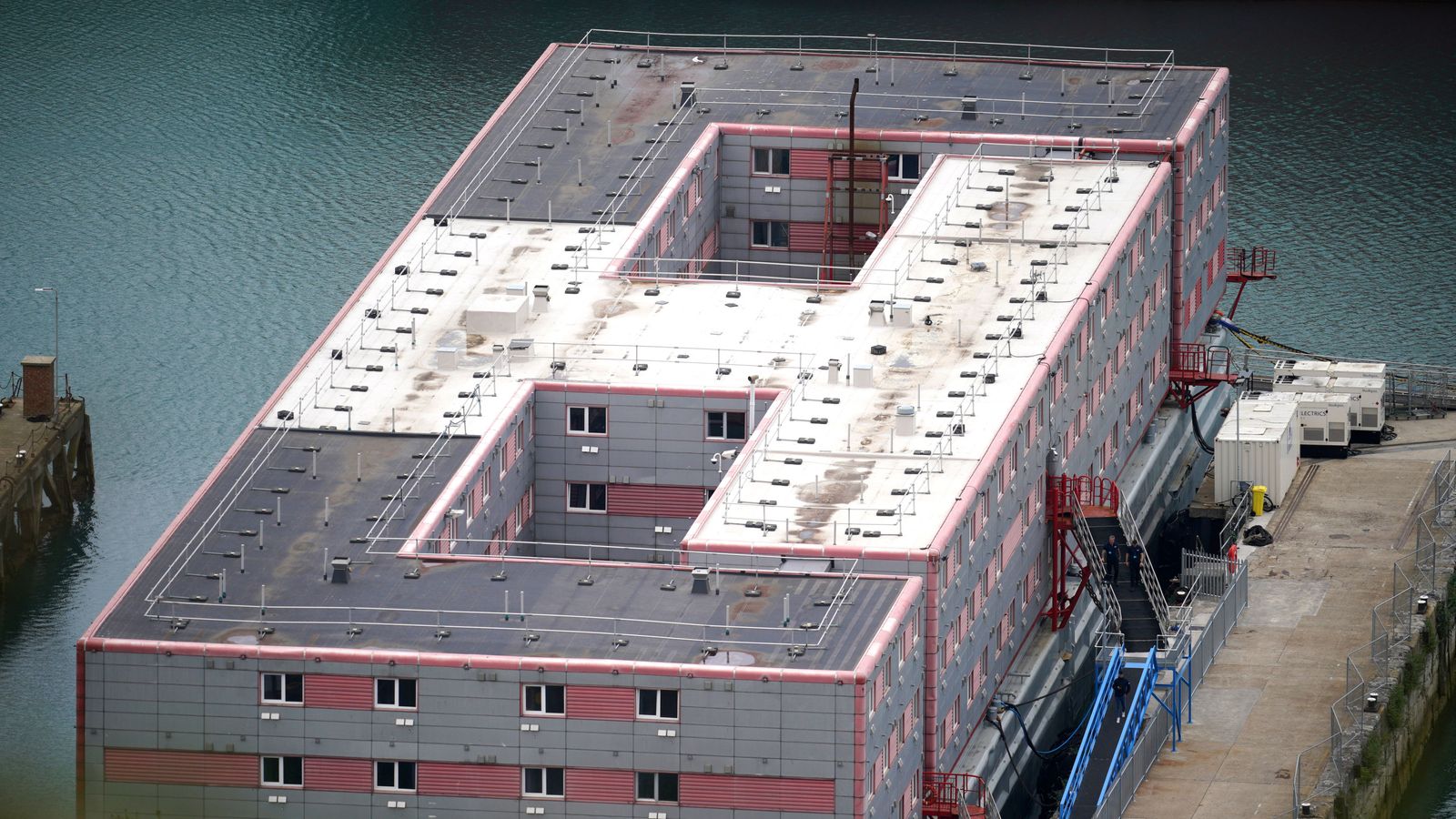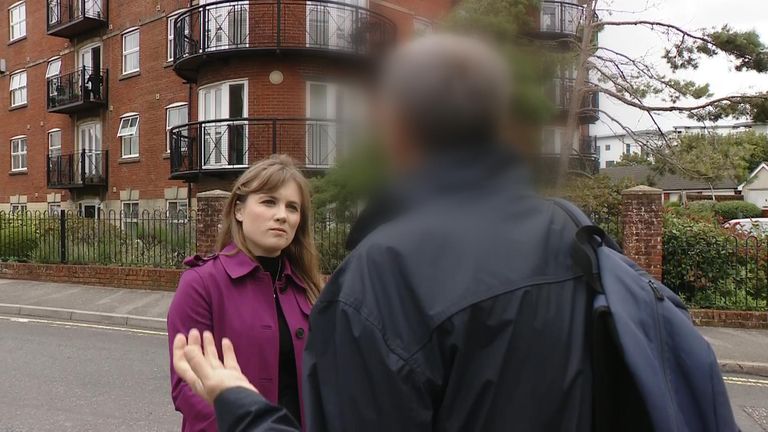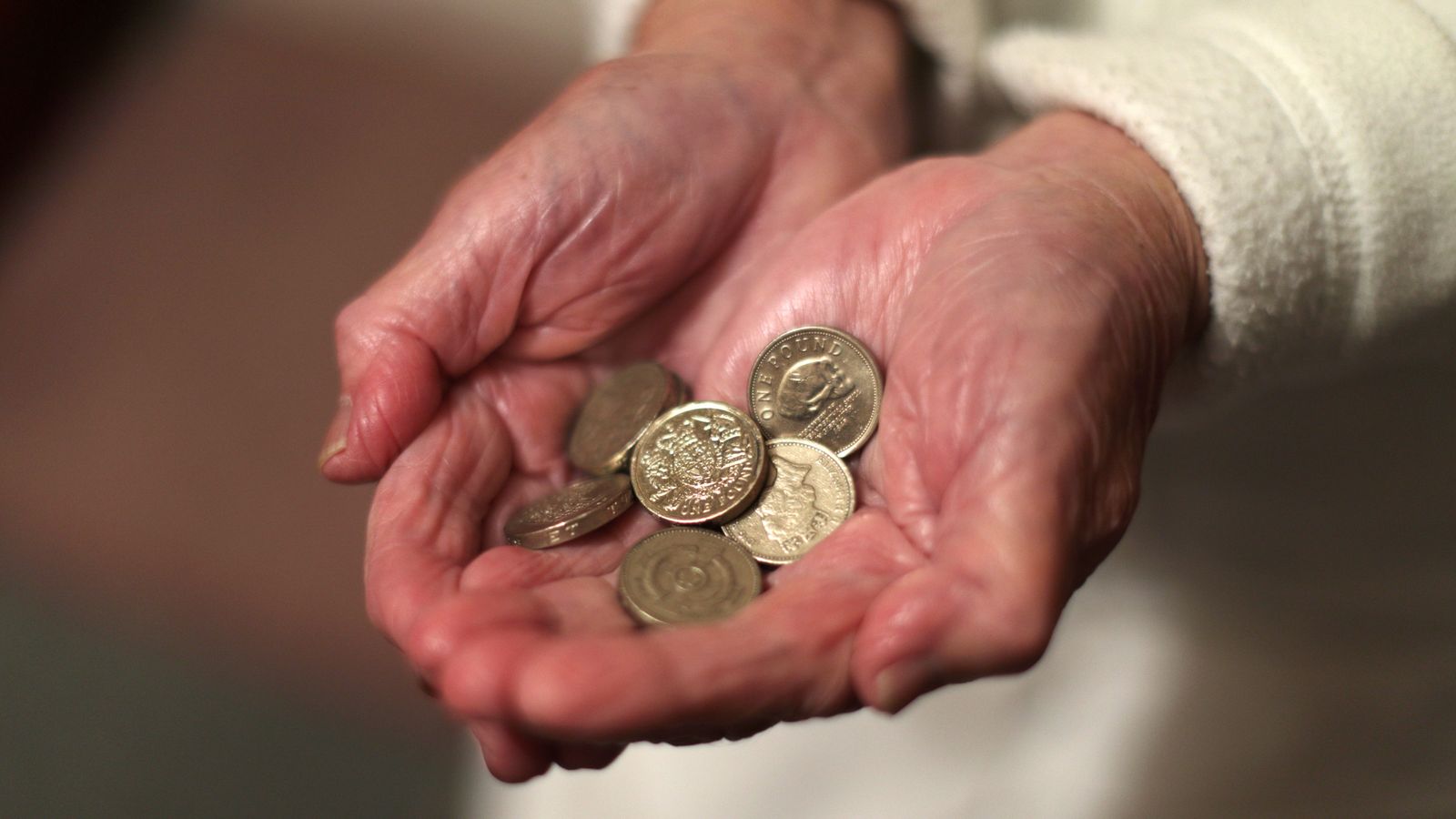Asylum seekers moved off Bibby Stockholm barge after Legionella bacteria found


Asylum seekers are being removed from the Bibby Stockholm barge in Dorset after Legionella bacteria was found in the water.
All of those on board are likely to be taken to new accommodation as a precautionary measure.
Immigration minister Robert Jenrick is understood to be chairing meetings about the situation.
Legionella bacteria, which is commonly found in water, can cause a serious type of lung infection known as Legionnaires’ disease. None of those on the barge have shown signs of having the disease.
Routine testing of the water supply was initially carried out on 25 July but Sky News understands the results did not come back until 7 August, the same day that asylum seekers began to board the barge.
Further tests have been carried out and the government is awaiting the results – but questions have been raised as to what the government knew and when.
A Home Office spokesperson said the health and welfare those on board the vessel “is our utmost priority”.
“Environmental samples from the water system on the Bibby Stockholm have shown levels of legionella bacteria which require further investigation,” they said.
“Following these results, the Home Office has been working closely with UKHSA [UK Health Security Agency] and following its advice in line with long established public health processes and ensuring all protocol from Dorset Council’s environmental health team and Dorset NHS is adhered to.
Advertisement
Please use Chrome browser for a more accessible video player
2:14
Inside the Bibby Stockholm barge
“As a precautionary measure, all 39 asylum seekers who arrived on the vessel this week are being disembarked while further assessments are undertaken.
“No individuals on board have presented with symptoms of Legionnaires’, and asylum seekers are being provided with appropriate advice and support.
“The samples taken relate only to the water system on the vessel itself and therefore carry no direct risk indication for the wider community of Portland nor do they relate to fresh water entering the vessel.
“Legionnaires’ disease does not spread from person to person.”
The first 15 asylum seekers boarded on the Bibby Stockholm in Portland, Dorset, on Monday and a small number also arrived on Tuesday.
Several refused to board the vessel amid warnings from the Home Office that they would face having government support removed.
Please use Chrome browser for a more accessible video player

8:53
Barge ‘is perfectly decent’
On Wednesday, Mr Jenrick described the barge as “perfectly decent accommodation”, despite earlier warnings from the Fire Brigades Union that the vessel was a “death trap”.
The capacity for the barge is more than 500 and has been hailed by the government as a deterrent against small boat crossings.
However, in a further blow to Rishi Sunak, the number of people who have crossed the English Channel in small boats in the past five years has now passed 100,000.
The latest Home Office figures showed 755 migrants were detected in the Channel on Thursday, the highest daily figure so far this year.
However, the total number of small boat arrivals so far this year is around 15% below the equivalent number at this point last year.
The Bibby Stockholm is one of a number of alternative sites the Home Office is using to end reliance on expensive hotels for asylum seekers, which the government says is costing £6m a day.
Please use Chrome browser for a more accessible video player

0:49
Barge reminds migrant of Islamic State
There has been considerable local opposition due to concerns about the asylum seekers’ welfare and the impact on local services.
The opening of the vessel has been beset by a number of delays, including initially around fire safety concerns and then because of working practices for port authority workers.
Read more on the Bibby Stockholm:
What’s it like inside the barge?
After the first cohort boarded the Bibby Stockholm on Monday, Cheryl Avery, the director of asylum accommodation at the Home Office, said: “We have had a few challenges, but this is part of an ongoing structured process to bring a cohort of up to 500 people on board.
“There have been some challenges, some minor legal challenges, and I can’t go to the detail of those, but accommodation is offered to all individuals on a no-choice basis – so we are looking at how we manage that going forward.”
On Tuesday, one asylum seeker said living on the Bibby Stockholm would remind him of hiding from the Islamic State group.
Two other vessels set to house 1,000 asylum seekers were unable to find anywhere to dock and have been returned to their owners.

